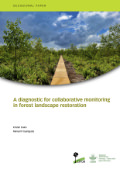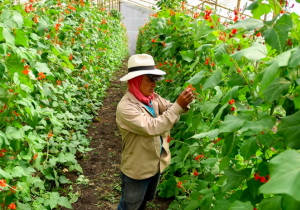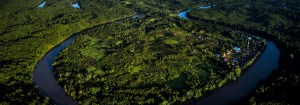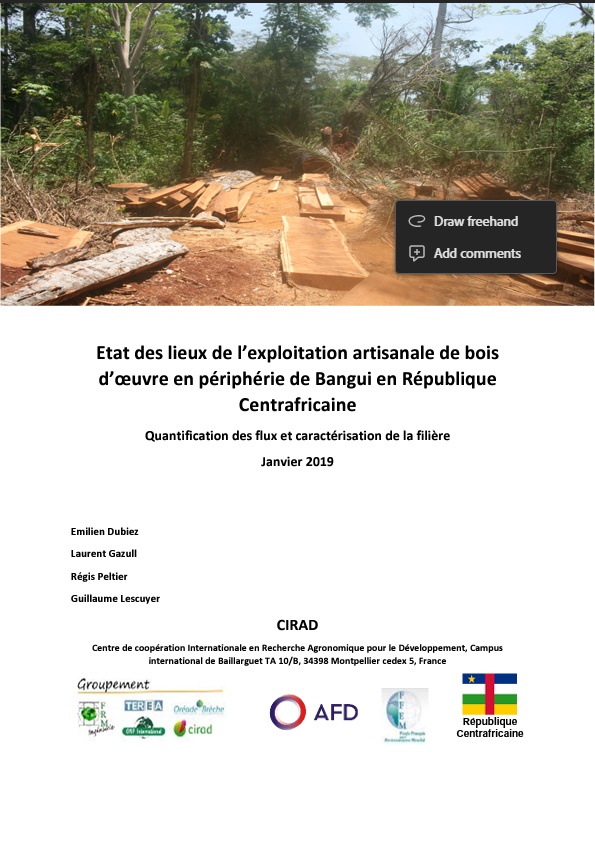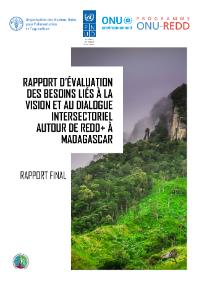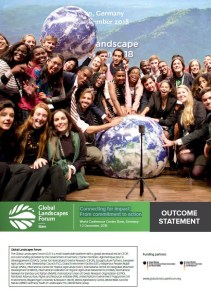A diagnostic for collaborative monitoring in forest landscape restoration
Forest landscape restoration (FLR) requires a long-term commitment from a range of stakeholders to plan the restoration initiative collaboratively and see it through successfully. This is only possible when the people involved whether they are landholders, indigenous groups, government entities, non-governmental organizations or other crucial actors come together to define common goals and monitor progress toward those goals.
The Business of Planting Trees
Across the world, companies with a wide range of business models are making money from planting trees. These restoration enterprises are proving that restoring degraded forests and agricultural lands is not only good for the planet, but a good business opportunity as well.
Roots of prosperity
Almost one-quarter of the world’s land area has been degraded over the past 50 years because of soil erosion, salinization, peatland and wetland drainage, and forest degradation. The resulting damage, in terms of lost ecosystem goods and services, costs the world an estimated US$6.3 trillion a year.
UN Decade of Ecosystem Restoration 2021 – 2030 Initiative proposed by El Salvador with the support of countries from the Central American Integration System (SICA)
During the Bonn Challenge 3.0 high-level meeting in Brazil in March 2018, El Salvador indicated its intention to seek the proclamation of the “UN Decade of Ecosystem Restoration 2021 – 2030”. This concept note sets out the context, rationale and purpose of this initiative. The distribution of this concept note is intended to reach the international community including governmental and non-governmental actors, UN agencies, and civil society.
Resumen. Avances y desafíos para la titulación de comunidades nativas en San Martín y Ucayali, Perú
El Gobierno del Perú está avanzando poco a poco en el proceso de reconocimiento y formalización de los derechos territoriales de los pueblos indígenas de la Amazonía.
Progress and pitfalls for the titling of native communities in San Martín and Ucayali, Peru
The Government of Peru is gradually advancing in the process of recognizing and formalizing the territorial rights of the indigenous peoples of the Amazon.
In order to document and analyse how titling is carried out and how the local population perceives its impacts, the Centre for International Forestry Research (CIFOR), with the support of German development cooperation, conducted a study on the progress and challenges of native community titling processes. this is the summary of the study conducted in the Ucayali and San Martin regions of the Peruvian Amazon.
Etat des lieux de l'exploitation artisanale de bois d'oeuvre en périphérie de Bangui en République centrafricaine.
Cette étude a été réalisée dans le cadre du Projet de développement de la Région Sud-Ouest (PDRSO), projet financé par l’Agence française de développement (AFD).
L’étude avait pour objectifs de :
- quantifier les flux de sciages artisanaux de bois d’œuvre entrant et sortant de Bangui,
- Caractériser cette filière.
Elle a été conduite dans le cadre du Projet de développement régional du Sud-Ouest (PDRSO) qui a débuté ses activités en octobre 2016 et dont les objectifs spécifiques sont :
Rapport d’évaluation des besoins liés à la vision et au dialogue intersectoriel autour de REDD+ à Madagascar
Madagascar est en train d’initier son processus de préparation à la REDD+, incluant le développement d’une stratégie REDD+, bien qu’une vision REDD+ pour Madagascar reste encore à établir. Pour qu’une vision et une stratégie transformationnelle et collective de REDD+ puissent voir le jour, il est nécessaire de s’assurer que:
• il existe un équilibre entre les niveaux d’importance et d’influence des différents acteurs;• les positions des différents acteurs en termes de vision REDD+ puissent converger autour d’une vision transformationnelle de REDD+;Forest restoration: Getting serious about the ‘plus’ in REDD+
Outcome statement of the 2018 Global Landscapes Forum: Connecting for impact: From commitment to action
The outcome statement for GLF Bonn 2018, featuring the key insights and takeaways from the event that took place December 1-2.


